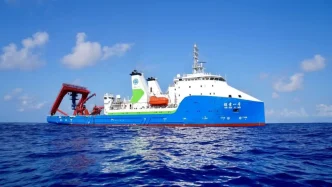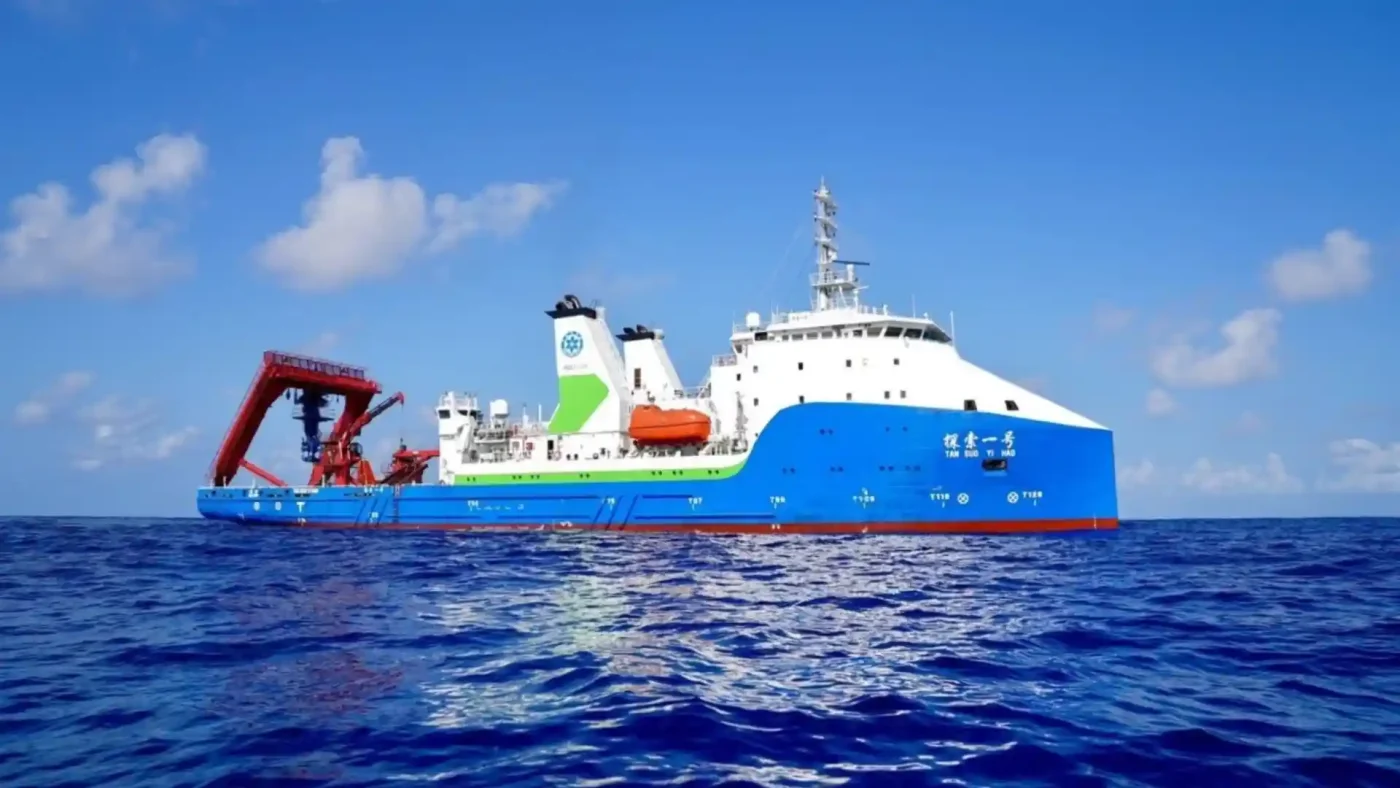Manila faces mounting challenges on multiple fronts as President Ferdinand Marcos Jr. orders a comprehensive investigation into dredging and reclamation activities in Philippine waters, amid heightened regional tensions and reaffirmed US commitments to Indo-Pacific security. This development coincides with speculation over a potential Filipino successor to Pope Francis, adding a layer of cultural and global significance to the nation’s current narrative.
Marcos Orders Probe into Dredging and Reclamation
In a decisive move, President Ferdinand Marcos Jr. has directed authorities to scrutinize dredging and reclamation projects across Philippine waters, citing concerns over environmental degradation and potential violations of national sovereignty. The directive follows reports of unauthorized activities in areas critical to the country’s maritime boundaries, particularly in the contested South China Sea, where the Philippines has long asserted its territorial claims against competing interests.
The investigation aims to uncover whether these projects adhere to environmental regulations and international agreements. Sources close to the administration suggest that the probe may also assess foreign involvement in such activities, though no specific entities have been named. Environmentalists have welcomed the move, highlighting the irreversible damage caused by reclamation to marine ecosystems, including coral reefs and fishing grounds vital to coastal communities. “This is a step toward accountability” said a spokesperson for a local conservation group, emphasizing the need for transparency in project approvals.
The timing of Marcos’ directive is significant, as the Philippines continues to navigate complex geopolitical waters. The South China Sea remains a flashpoint, with overlapping claims from China, Vietnam, and other neighboring states. Analysts suggest that the probe could serve as a diplomatic signal, reinforcing Manila’s commitment to protecting its Exclusive Economic Zone (EEZ) while avoiding direct confrontation. If confirmed, any evidence of foreign interference in reclamation efforts could escalate tensions, raising questions about how the Philippines will balance domestic priorities with regional stability.
US Reaffirms Security Commitments in the Indo-Pacific
Amid these maritime concerns, a senior US military official has reiterated Washington’s pledge to ensure the security of its Indo-Pacific allies, including the Philippines. Speaking at a recent regional forum, the top US general emphasized America’s unwavering support for a rules-based international order, particularly in safeguarding freedom of navigation and overflight in disputed waters like the South China Sea. “Our commitment to our allies is ironclad” the general stated, underscoring the strategic importance of the region to global trade and security.
The US-Philippines alliance, rooted in the 1951 Mutual Defense Treaty, has gained renewed focus under Marcos’ administration, which has sought to strengthen military cooperation through joint exercises and expanded access to Philippine bases under the Enhanced Defense Cooperation Agreement (EDCA). This comes as China’s military presence in the region grows, with frequent incursions reported near Philippine-held features in the Spratly Islands. The US statement serves as both reassurance to Manila and a deterrent to potential aggressors, though some analysts caution that heightened American involvement could further complicate regional dynamics.
For the Philippines, US backing offers a critical counterbalance, yet it also places the country at the center of a broader superpower rivalry. Public sentiment, as reflected in recent discussions on social media platforms like X, reveals a divide—while some Filipinos welcome American support as a necessary shield, others express unease over the risk of being drawn into a larger conflict. The challenge for Marcos lies in leveraging this alliance without compromising national autonomy, a delicate balancing act as maritime disputes persist.
Environmental and Economic Stakes of Maritime Activities
Beyond security concerns, the dredging probe underscores the environmental and economic stakes tied to Philippine waters. Reclamation projects, often justified as infrastructure development, have historically disrupted fishing communities, which rely on coastal areas for their livelihoods. The financial cost of environmental damage is staggering, with local estimates suggesting losses in the billions of Philippine Pesos (PHP), equivalent to millions in USD based on current exchange rates (e.g., PHP 56 billion, approximately US$1 billion as of May 2025).
Moreover, unauthorized or poorly regulated projects risk undermining the Philippines’ position in international arbitration, particularly following its 2016 victory at the Permanent Court of Arbitration, which invalidated China’s expansive claims in the South China Sea. Any evidence of internal lapses in enforcing maritime laws could weaken Manila’s legal and moral standing, even as it seeks to uphold its rights. The Marcos administration must tread carefully, ensuring that domestic actions align with its global advocacy for a rules-based order.
Cultural Spotlight: Cardinal Tagle as Potential Papal Successor
Amid these political and security developments, a different kind of speculation has captured the nation’s attention—the possibility of Filipino Cardinal Luis Antonio Tagle emerging as a successor to Pope Francis. Known for his progressive views and deep connection to the Asian Catholic community, Tagle has long been regarded as a prominent figure in the Vatican, currently serving as Pro-Prefect for the Dicastery for Evangelization. Recent reports suggest that his name is among those discussed in ecclesiastical circles as a potential pontiff, a prospect that has sparked pride and hope among Filipinos.
Tagle’s potential candidacy carries profound cultural significance for the Philippines, home to one of the largest Catholic populations in the world. His leadership style, marked by humility and a focus on social justice, resonates with the challenges faced by many Filipinos, from poverty to climate vulnerability. “Having a Filipino pope would be a historic moment for Asia” said a Manila-based priest, reflecting a sentiment shared by many in the devoutly Catholic nation.
While Vatican succession remains speculative, with no official confirmation of Pope Francis’ plans, Tagle’s prominence highlights the global influence of the Filipino diaspora. It also offers a counterpoint to the country’s political struggles, reminding the international community of the Philippines’ cultural and spiritual contributions. If Tagle were to ascend to the papacy, it could elevate the nation’s soft power, providing a unique platform to address regional and global issues through a moral lens.
Navigating a Complex Future
The confluence of maritime investigations, international security pledges, and cultural milestones places the Philippines at a critical juncture. President Marcos’ probe into dredging and reclamation signals a commitment to national interests, yet its outcomes could ripple across the Indo-Pacific, influencing diplomatic ties and environmental policies. Simultaneously, the reaffirmed US alliance offers strategic depth, though it demands careful navigation to avoid entanglement in broader geopolitical conflicts.
On the cultural front, the prospect of Cardinal Tagle as a papal contender underscores the Philippines’ multifaceted identity—a nation grappling with territorial and economic challenges while holding a significant place in global spiritual discourse. As these stories unfold, questions linger about how Manila will assert its sovereignty, secure its alliances, and amplify its voice on the world stage. For now, the nation stands at the intersection of regional tensions and global aspirations, with each decision shaping its path forward.
















